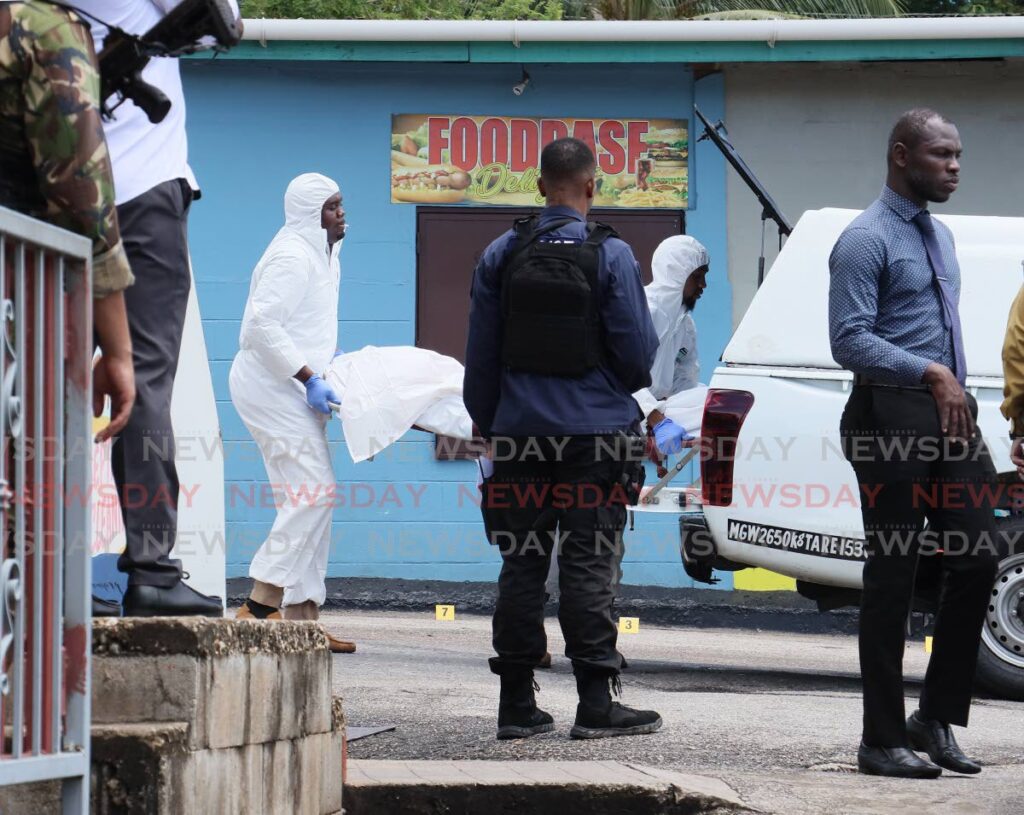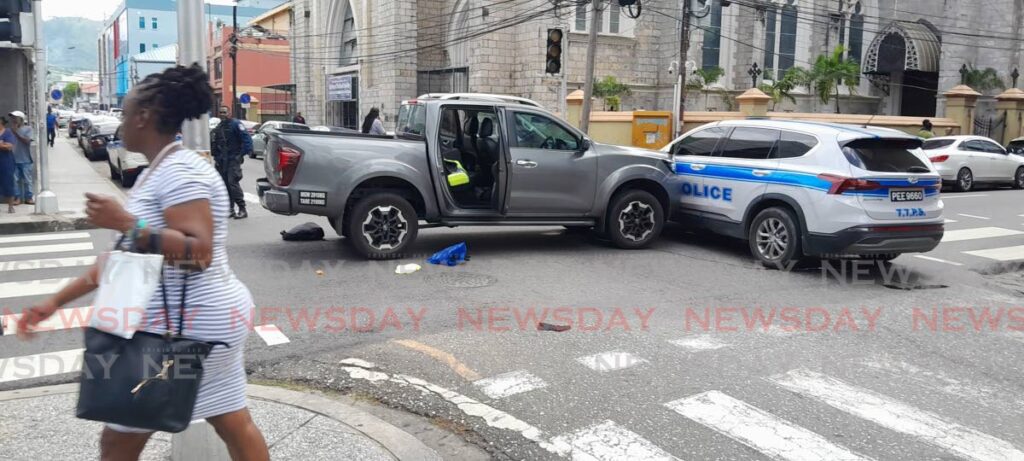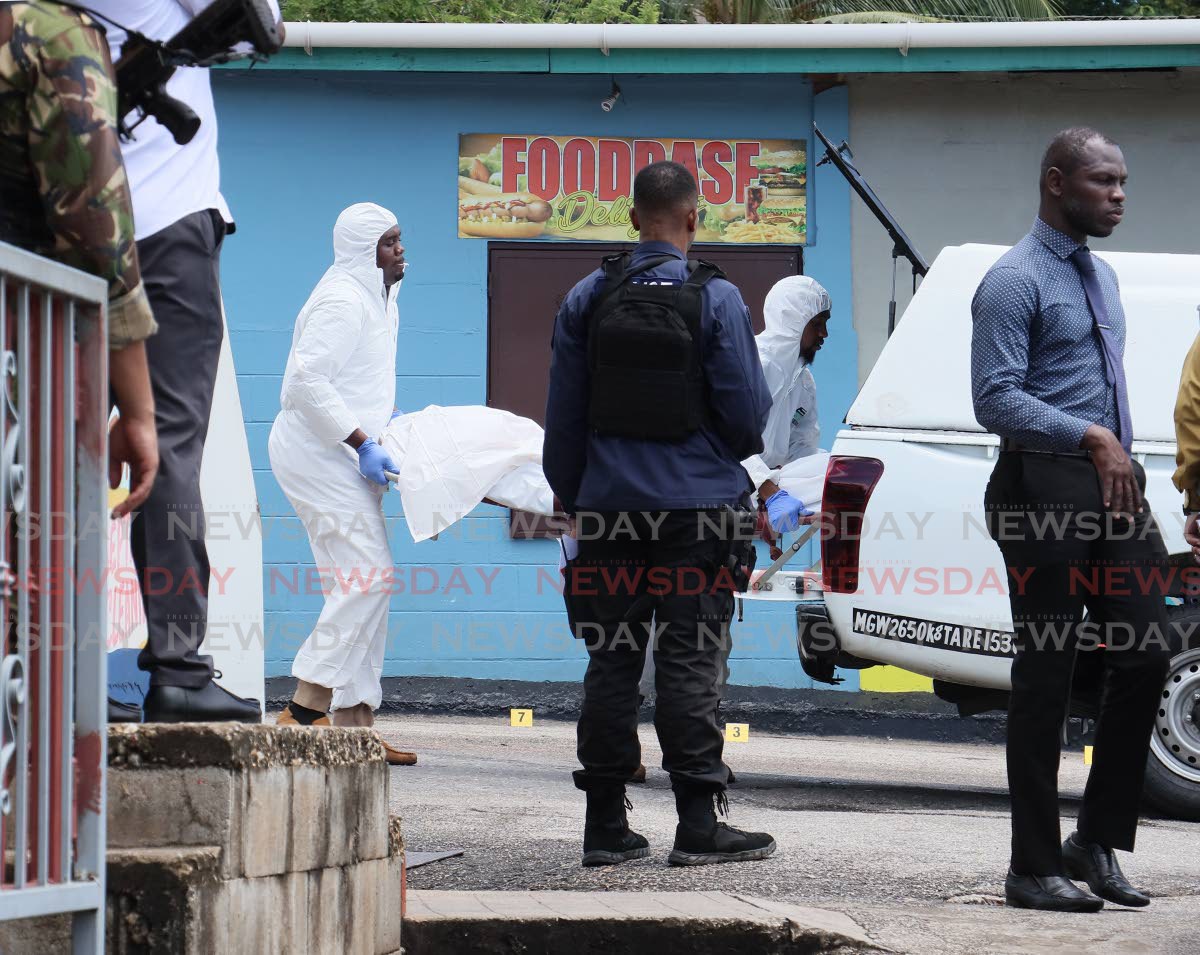Fear of crime cripples movement of people
Enrique Rupert

A DAILY STREAM of reports, images and videos of crime often shared on various social media platforms is affecting the way of life of people in Trinidad and Tobago with some avoiding social activity and seeking refuge in their homes.
A snapshot of people, from different walks of life, polled by Newsday revealed some steps they have taken to avoid becoming a crime statistic.
President of the TT Association of Psychologists Kelly Mc Farlane says the feelings of fear, paranoia and panic in response to the upsurge in crime are all normal reactions.
Mc Farlane responding to Newsday’s questions by e-mail on October 26 said if the feelings prevented daily activities from functioning normally, those people should seek the necessary help.
She also advised people to limit their exposure to crime-related news, conversations and videos as it can be traumatising.
>
“You have to be intentional about protecting your peace of mind. It is important to know what is happening in the country, so certainly watch the news or ask someone close to you to keep you updated on the events that you have to know about. But you may need to filter your exposure.”
Paranoia and fear among citizens
Newsday interviewed people living in TT, from various walks of life between October 24-25, with each person saying that crime was a constant factor, forcing them to change their routines and limit their freedoms.
Newsday spoke to two UWI students at the St Augustine campus on October 24.
Vaed Teeluckharry, 19, said the crime situation has had a significant impact on him mentally.
“It has made me more paranoid. When it’s time to go out with friends…I’m scared of what could happen.

“It has caused me to be more safe and wary of my surroundings.”
Teeluckharry said a major factor of him not experiencing crime directly is his “protective” parents who do not allow him to go out at night.
>
Karishma, 20, said she has had to schedule her classes differently because of the crime situation.
“A lot of my classes are in the morning and the afternoon, instead of at night. To walk home at night is a dangerous thing.”
She recalled a recent robbery that occurred on her street, where someone’s van was stolen.
She said she is now scared to park her own vehicle on the street.
“I might end up leaving it at home instead of driving up here. That’s just another freedom I’ll lose.”
Newsday also spoke to two police officers – deputy Commissioner of Police in charge of operations Junior Benjamin and a police constable from the Western Division, who spoke on the condition of anonymity – by phone on October 25.
Benjamin said the crime situation has made him more vigilant and cautious but it has come at an expense.
“I have put cameras on my property and alarm systems because I know of the times we are living in.
“When I’m going and coming I’m always looking at my surroundings.”
>
He said he has also educated his family on the potential dangers that lurk and is very protective, specifically of his children.
“I don’t really send my daughter out like that. I must know where she’s going, who she’s going with and if possible, I personally will be there.
“We are a family that do things together, so it’s a lifestyle that keeps everyone close.”
The police constable said crime has taken away his desire to leave the house.
“Besides going to work or running errands, I no longer feel to lime or socialise as much with the general public because of the current state of the country.”
He said he loved going to Ariapita Avenue to lime but does not remember the last time he has been there.
While he acknowledged being at home does not exempt him from crime, “It still feels like the safer alternative, based on where I live.”
Newsday also spoke to two vendors on Charlotte Street, Port of Spain on October 25. They spoke on the condition of anonymity.
They said they have seen a decline in sales owing to the crime situation.
>
One woman said, “Crime occurs nearby and frequently. The customers are very hesitant to visit.
“Just this week there was a shooting incident on the next street and the next day sales was extremely slow.”
On October 22, a water vendor was shot in a brazen attack, at the corner of Piccadilly and Besson Street in Port of Spain, metres away from the police station.
She said she has to close her stall earlier, as it is not safe to be outside later in the afternoon.
Another female vendor who has been vending since February said she has seen a decline in sales as the crime in the captial city has worsened in the last eight months.
“It hardly have people on Charlotte Street now and because of the crime situation, I closing up 5.30 pm instead of 7 pm.”
She said the police patrols on Charlotte Street are not frequent and hopes it picks up for the upcoming Christmas season.
Both vendors spoke of their increased vigilance and alertness, especially when going to get their goods.
Tips to cope
>
Newsday asked Mc Farlane if there had been an increase in patients who are victims of crime, she said, “There is no data to support this.

“Anecdotally, I would say the short and long-term effects of crime-related trauma, such as those consistent with post traumatic stress disorder (PTSD) have been areas that we’ve seen growing requests.”
She said her data did not account for survivors of violent crimes who access government mental health services and interventions.
“I assume they would experience a greater increase than private practices.”
Asked to give advice to victims of crime who may not be ready for therapy, Mc Farlane said, “It is okay to give yourself some time, and during that time, ensure that you utilise your support network if you have a reliable one.
“Don’t isolate yourself, as this will only make things worse.”
She highlighted the importance of therapy and their benefits as it can prevent long-term mental illness.
“It allows the survivor to process and develop coping skills and the necessary support for recovery.
“It can also help rebuild a sense of identity and control, which trauma often disrupts.”
She said problems such as insomnia, digestive issues, and even chronic pain can be derived from trauma.
“Therapy helps to relieve some of these symptoms and helps the survivor to build resilience and well-being.”
Newsday asked Mc Farlane if there were any places that the public can access therapy or counselling for free.
She said some of the regional health authorities and public hospitals provide psychological support services and have psychiatry clinics.
Visit findcarett (https://findcarett.com/) for a list of free crisis support options.

